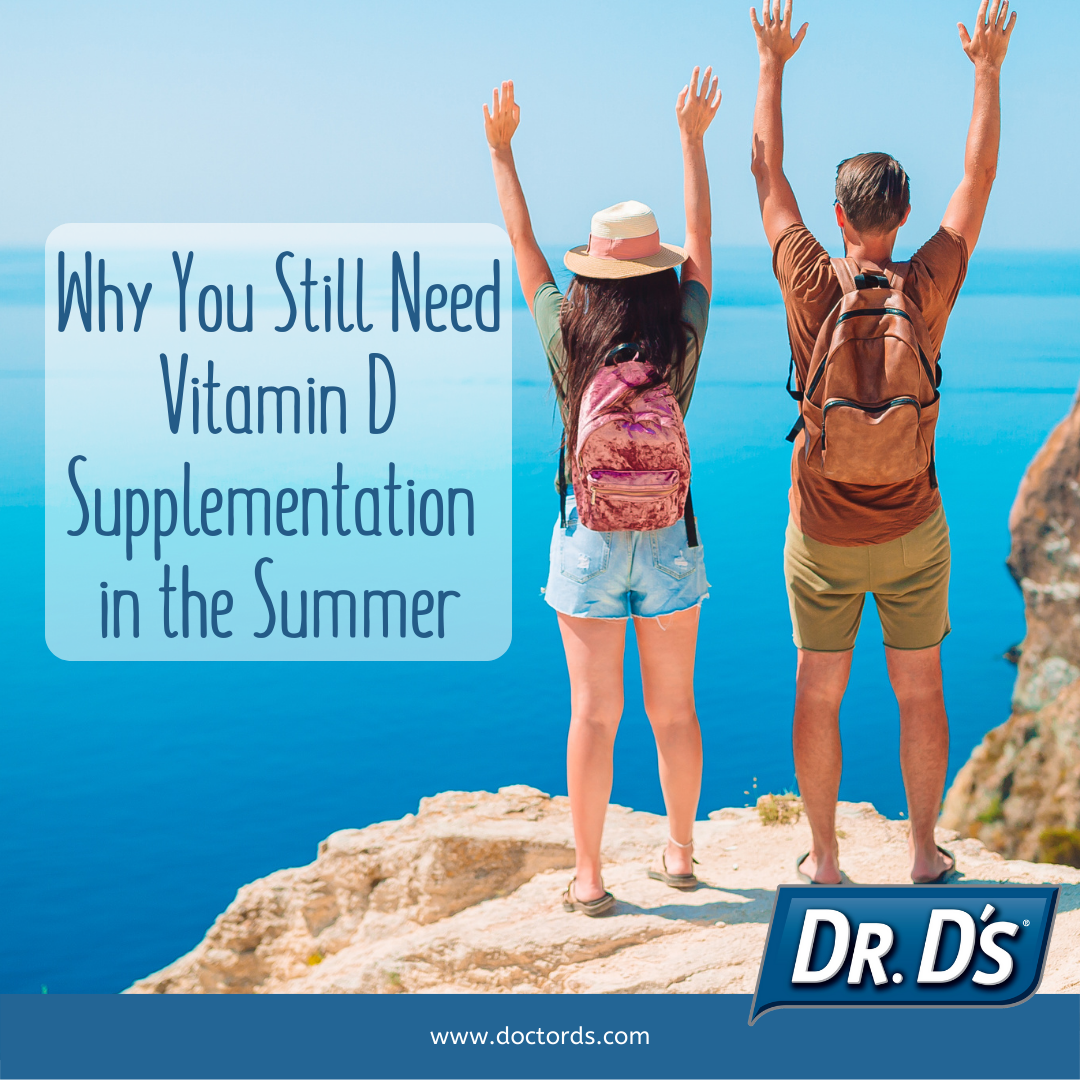
Should I continue taking my Vitamin D supplement in the summer?!
Share
Let’s back track a bit. Vitamin D, commonly referred to as “the sunshine vitamin,” is a vital nutrient as it is essential for many biological processes. For more information on Vitamin D specifically, please click here .
Your body has the fascinating ability to produce vitamin D. When your skin is exposed to sunlight, the ultraviolet B (UVB) rays prompt cholesterol in the skin to synthesize vitamin D. In theory, our bodies would be able to produce enough vitamin D without supplementation, however, for most people this is simply not the case.
Here are the reasons why:
1) How much time are you really spending outdoors in the summer?
It is recommended to be outside everyday during peak UVB times, approximately between 11am and 3pm, for at least half an hour; although it is still not known exactly how long sunlight exposure is required to produce adequate daily levels of vitamin D. Another problem here is that many people are working during those hours and/or may not be dressed properly if they are outdoors during that time (ie. one should be wearing a thin tank top and shorts to maximize skin exposure). Sitting next to a sunny window doesn’t count either as UVB rays are blocked by glass!
2) The Sunscreen Dilemma
If you are lucky enough to enjoy the outdoors that often during the summer with maximal skin exposure, you are (hopefully) wearing sunscreen, a hat and sunglasses because as you know, too much sun can lead to heat stroke, sunburns, skin cancers, accelerated aging and eye damage. All of those protective measures are necessary during sunlight exposure; however, they are limiting the UVB rays from getting to your skin and therefore hindering vitamin D synthesis.
3) Melanin
Melanin determines your natural skin pigment. The more melanin, the darker the skin tone. Melanin is like a natural sunscreen as it absorbs UV rays and therefore protects against sunburns and skin cancers. Therefore, those with more melanin require more time outdoors in order to produce adequate levels of vitamin D (is it estimated anywhere between 30 minutes to 3 hours longer).
4) Climate
The further away you live from the equator, the less exposure you are getting year-round to sunshine. For example, a large portion of Canadians get very limited sun exposure between the months of October and March. Because it is a fat-soluble vitamin, vitamin D is able to be stored in the fat cells and liver and the body can use it later on in the event that there is low intake. This has been presented as an argument to forego vitamin D supplementation in the summer. However, I have not been able to find any literature on how long these stores last or how much vitamin D intake would be required to supply those stores throughout the summer months if one were to decide to skip the supplement in the summer. (A side note to this is the consideration that since it is a vitamin that is actively stored by the body, it is more likely to reach toxic levels as opposed to its water-soluble counterparts which are more readily excreted by the body. Please see here for the latest guidance on the specific recommendations of intake requirements and toxicity levels for your particular age.)
5) Age
As we age, the skin’s ability to produce vitamin D through sunlight decreases.
So, there you have it: 5 simple reasons to consider taking your vitamin D supplement throughout the summer.
**Please read and thoroughly follow directions on the labels of your supplements, and always speak with your healthcare provider before starting or stopping any supplementation.**